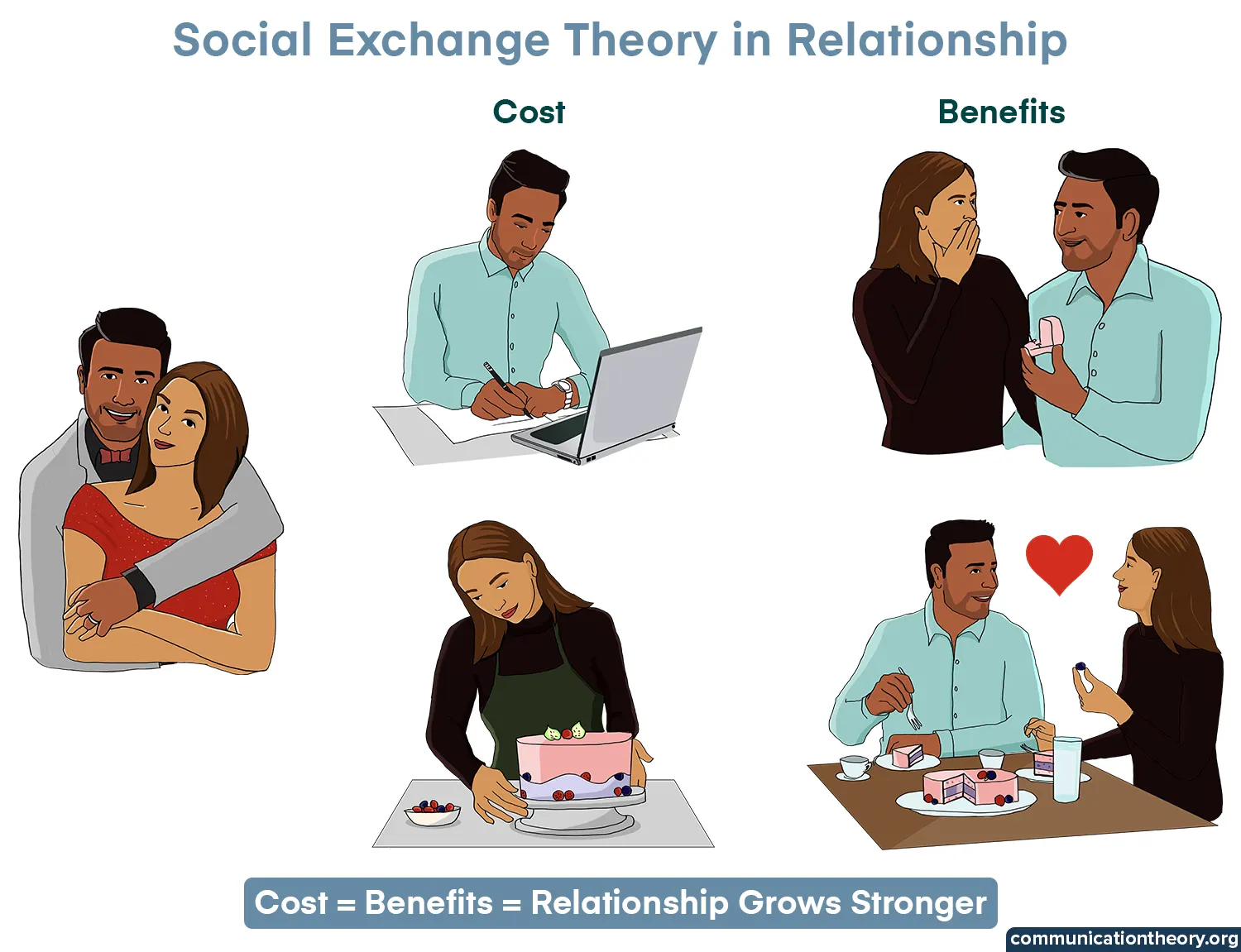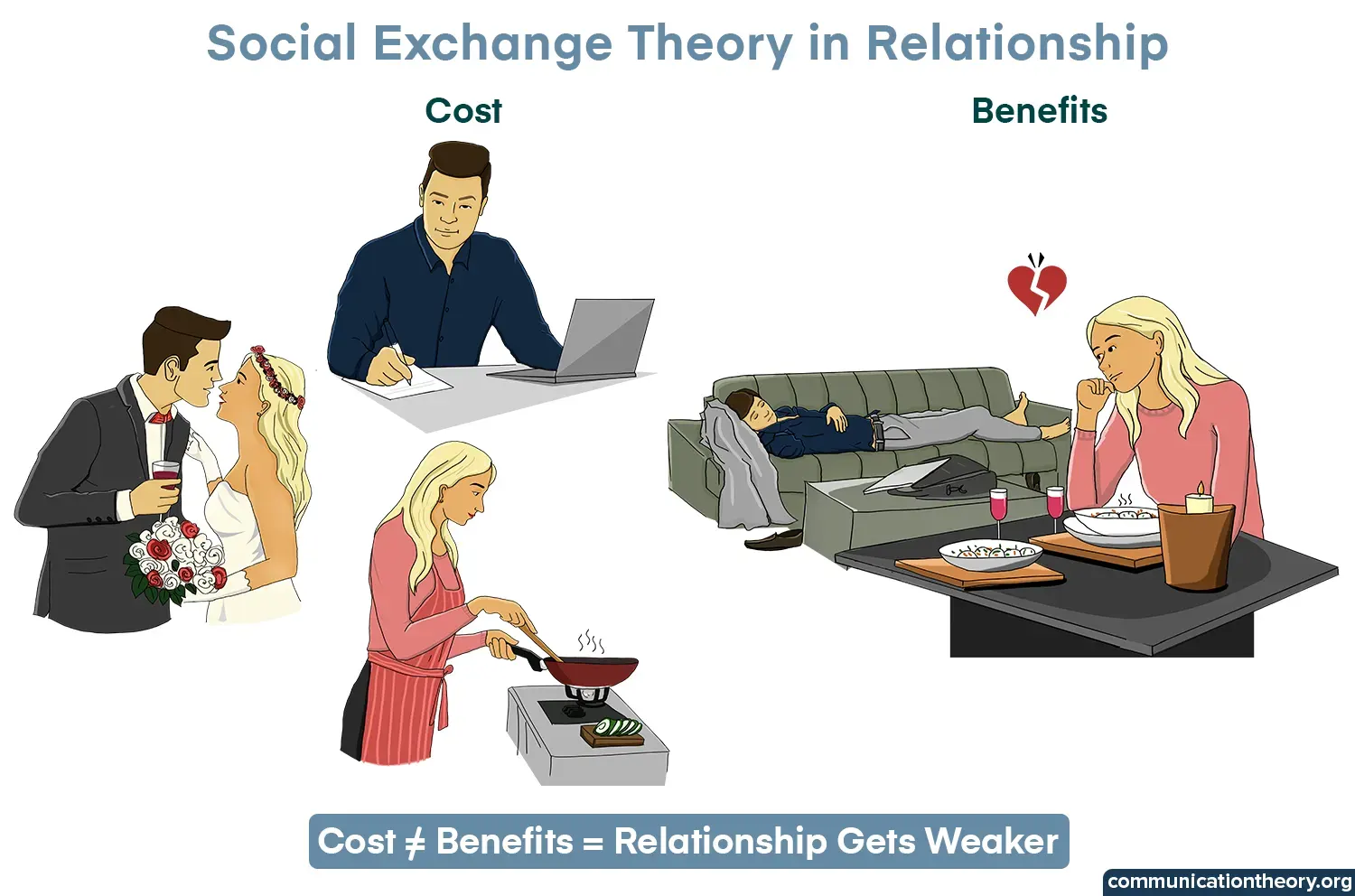Human relationships are marked by a consistent pattern of giving and take; it isn’t a relationship if not. It is this pattern that later decides the nature of the relationship; its duration and intimacy. Conflicts arise between two parties when the expected response or behavior does not reflect on their plate as this causes confusion, shock, disappointment and anger on the part of the receiver which is followed by a streak of arguments, passive aggression and if not complete abandonment.

Source: Fxquadro/Adobe Stock
Things may take sharp endings or sometimes people may make peace with the situation and proceed forward as they perceive the relationship to be more worthy in comparison to the small misunderstandings.
So what is social exchange theory? And what has it got to do with relationships?
Social exchange theory is a psychological theory developed by George C. Homans in the 1950’s which states that a relationship is determined by the cost and benefits that a person may incur or receive during a relationship. The nature of the relationship could be of any sort such as a romantic relationship, parental relationship, friendship, sibling relationship etc.
Basic assumptions of the theory
This theory claims that reward is the major determinant in any relationship and the motive behind forming any social bonding; the more rewarding a relationship, the longer it is likely to sustain.
For example, Robert chooses to make friends with his colleague Peter from the sales department so that he can get inside information about the department’s level of performance. This example shows that the motive behind his friendship is more than just forming acquaintances within the organization.
In simple terms, this theory states that people look to maximize the benefits of any relationship compared to the cost as that seems fair and just to them. Some psychologists view this theory as very individualistic because what may seem fair and acceptable for one may seem offensive and harsh to another.
Social expectations vary from person to person as people shape their expectations of others based on their past experiences, schema, and their perception of the world and their sense of self.
What does the cost and benefit of any relationship entail?
Cost is nothing but any form of investment a person makes in any relationship. Although money is the most obvious cost that would spring up in any mind, this can also be in the form of effort, time, energy or even the skill one may have to invest in the relationship for it to grow and flourish.
For example, if one chooses to spend their time and effort to complete an assignment for a friend who is sick despite having to cram up for the examination they haven’t prepared, that can be considered a cost.
On the other hand, benefits refer to the pleasant experiences; acceptance and companionship a person may receive by being a part of a relationship. The social exchange theory assumes that when the cost of a relationship seems to weigh down the benefits, it is likely to tip and lead to a harsh breakage between the two people involved and the relationship is likely to come to an end.
Another important concept under the social exchange theory is Equity. This is the notion that people also look for equity in the relationship that they engage in. In simpler terms, the cost and the rewards received by an individual should be equitable to the cost and rewards received by the other person as well. Equity is an important component in social relationships and it has been extensively studied. Researches show that balance in the matter of equity can lead to marital satisfaction among couples.

An imbalance in this trend can also jeopardize the relationship.
For example, a person who feels that they put in more effort and time in sustaining the relationship compared to the other person may feel resentment and end up questioning the whole ordeal. On the other hand, the other person may feel guilty for over-receiving efforts and money or any other form of reward.

Implications for social exchange theory
This theory has huge prospects as this can be applied extensively in the field of social psychology, sociology, organizational setups and studying interpersonal relationships.
However, it can comprehensively be applied to three areas of study:
- Psychological level: This is where the theory can be put to use to facilitate an efficient decision-making process.
- Economic level: Here the cost and benefits incurred through the social exchanges are viewed in terms of tangible resources such as money or products and services.
- Relational level: Where this economic theory can be used to assess interpersonal relationships.
Acclaims and criticisms for social exchange theory
Although the social exchange theory is a great leap in further understanding the nature of human behaviour and social relationships, it doesn’t hold good in every social situation; especially the concept of equity as we may easily come across people who, for various reasons would choose to stay in a relationship even if they have more to give than to receive from it.
The critics also point out that this theory is very mechanical and assumes a rational standpoint on relationships, discounting the complexity of human interactions. Many theorists also disagree with how self-oriented and reward-based the theory is. Despite the criticisms, the social exchange theory has indeed opened a portal of discussion to understand human interactions and relationships at a deeper level and provide implications for various fields of study.